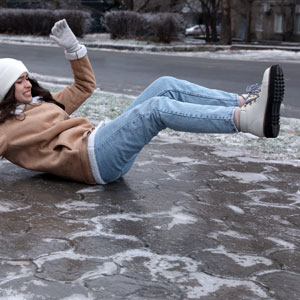 In this article, you can discover:
In this article, you can discover:
Slip and fall claims in Illinois generally fall under two categories: a negligence action or strict premises liability action. Each contains some small differences in the proof that is required, but the general idea is the same. Property owners have a duty to maintain their premises in a reasonably safe condition for anyone who is legally on the property.
The outcome of slip and fall actions frequently depends on whether the actions of the plaintiff (the party that is injured) contributed to their injury. The answers to these questions can have a large impact on your case:
Proving duty of care in slip and fall cases usually comes down to proof of notice of the condition. This tends to be the most difficult element for a plaintiff to prove. If there is clear notice, you have a stronger case. In other words, if this is a condition that the property owner has been aware of for some time, you have potential cases under strict premises liability and negligence.
Actual notice is real documented evidence that someone in control of the premises has seen the defect in the property. This evidence could consist of a written report or video, for example.
Constructive notice is a little bit more indirect. It exists when the property owner should have known about the condition. This may arise when a defect has been present for a long period of time such that the owner should have learned about it, but insufficient evidence exists to prove that they actually did know about it.
Hazards are generally proven with evidence of a condition that is unsafe. Fault, on the other hand, comes down to whether there is a defect in the premises that the property owner should have known was dangerous.
An issue that frequently arises in slip and fall cases is the level of fault that should be attributed to the injured party. In Illinois, it’s called comparative negligence. Even if you are found to have some fault, you may still be able to recover damages.
Many times, we can achieve great results for our clients by aggressively preparing for trial and forcing the liable party to negotiate a settlement. A settlement is beneficial because it can get you paid quicker than you would otherwise be paid through a lengthy trial. and the risks of trial (and an unfavorable verdict) are eliminated.
Our firm recently settled a slip and fall case where a client tripped over a large pothole while carrying groceries from her car into her apartment building at night. The case largely came down to what level of fault the plaintiff shared. With the assistance of a third-party mediator, we successfully negotiated a very favorable settlement for enough money to allow our client to get the surgery she needed to fix her injured wrist. Our client was also able to take time off work to recover without worrying about money.
For more information on How To Prove A Slip And Fall Claim In Illinois, a free initial consultation is your next best step. Get the information and legal answers you are seeking by calling (630) 601-7170 today.